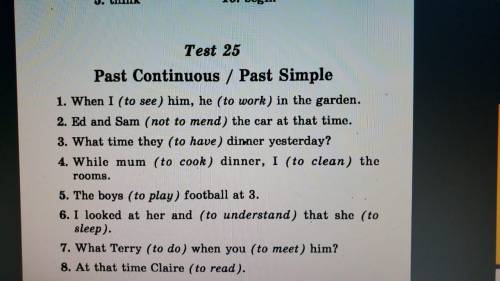
1. She needs some books.
Does she need some books? - Yes, she does / No, she doesn't.
2. Mary is going to become a manager.
Is Mary going to become a manager? - Yes, she is / No, she isn't.
3. Yesterday she had a lecture by famous businessman.
Did she have a lecture by famous businessman yesterday
- Yes, she did / No, she didn't..
4. She was listening very well.
Was she listening very well? - Yes, she was / No, she wasn't.
5. Before she went to the lecture, she had visited her grandmother.
Had she visited her grandmother before she went to the lecture?
Yes, she had / No, she hadn't.
6. They talked for a long time.
Did they talk for a long time? - Yes, they did / No, they didn't.
7. Mary will be a good specialist.
Will Mary be a good specialist? - Yes, she will / No, she won't.
8. She is going to write her diploma on marketing management.
Is she going to write her diploma on marketing management?
- Yes, she is / No, she isn't.
9. She will have finished her diploma by the end of May.
Will she have finished her diploma by the end of May?
- Yes, she will / No, she won't.
1. The blocks of flats vary (Present Simple - to vary) from 9 to 12 storeys.
2. People began (Past Simple - to begin) to build houses of different materials such as mud, wood or stones.
3. Planning will include (Future Simple - to include) avoidance of crowding and excessive growth.
1. Многоквартирные дома имеют от 9 до 12 этажей.
2. Люди начали строить дома из различных материалов, таких как глина, древесина или камень.
3. Планирование будет включать в себя предотвращение скученности и чрезмерного роста.
1 saw, was working
2 weren't mending
3 What time were they having dinner
4 cooked, was cleaning
5 were playing
6 understood, was sleeping
7 was doing, met
8 was reading